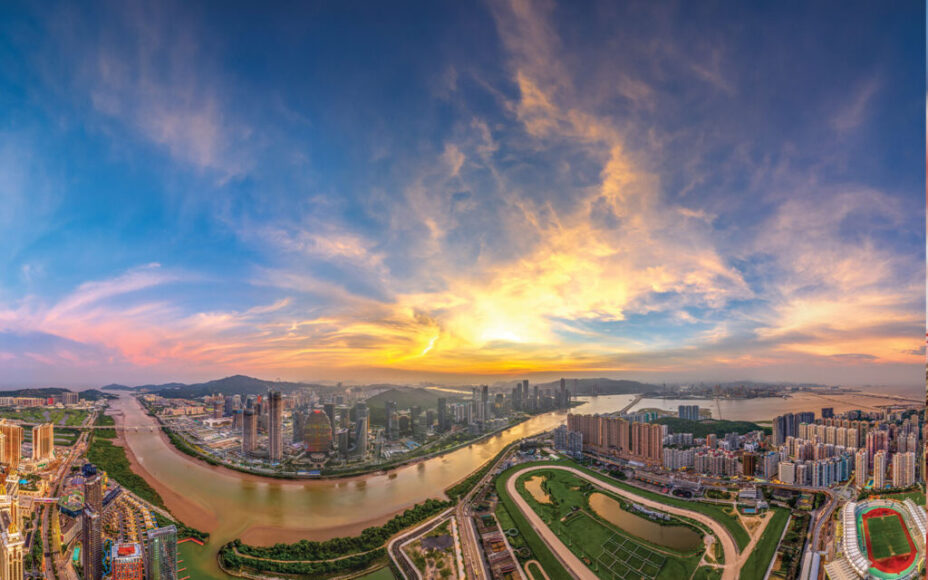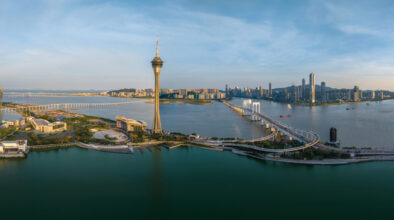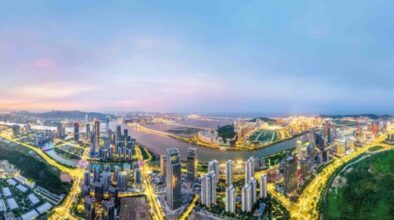As a Special Administrative Region (SAR) of China, Macao contributes to national objectives and is fully integrated with the Central Government’s vision. It is already an active participant in the Guongdong-Hong Kong-Macao Greater Bay Area (GBA). However, Macao also retains its own systems. It is a separate customs territory with its own import/export controls and immigration policy, and its unique legal system. It also maintains a uniquely multicultural way of life.
The situation is win-win. While the GBA gives Macao the necessary leverage to help meet China’s national objectives, Macao extends the GBA’s global outreach. This is evidenced by the SAR’s standing within the global community of Portuguese-speaking countries (PSCs), rooted in shared language and history.
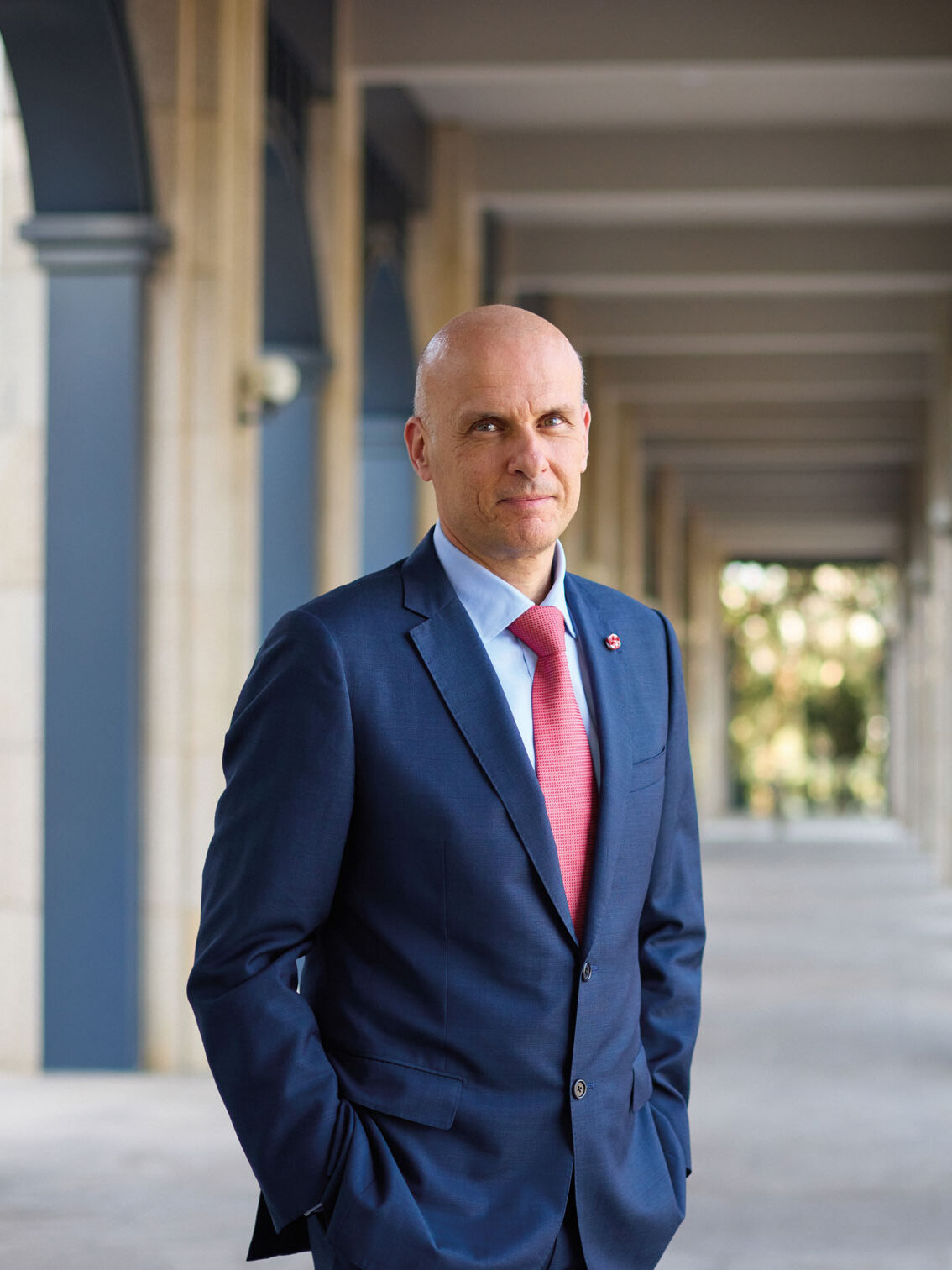
The SAR is developing quickly under the ‘One Country, Two Systems’ policy – the very thing that allows Macao to maintain its unique aspects and transform them into competitive advantages. It’s also what ties Macao to the mainland as a whole. The framework imbues the city with the distinctive characteristics of Chinese modernisation and ensures Macao is fully engaged in transforming China into President Xi Jinping’s vision of a “great modern socialist country” from 2035 through the middle of this century.
The Central Government has also granted Macao the position of ‘One Centre, One Platform and One Base’. Here, the ‘centre’ refers to Macao’s status as a ‘World Centre of Tourism and Leisure’. The ‘platform’ is Forum Macao, formally the Forum for Economic and Trade Co-operation between China and Portuguese-speaking Countries (the SAR is home to its Permanent Secretariat). The ‘base’ is cultural. It references the unique fusion of cultures, with an emphasis on Chinese culture, that harmoniously coexist in Macao. This triple foundation is associated with three key drivers of the SAR’s development: integration, economic diversification and cooperation.
Integration with the mainland
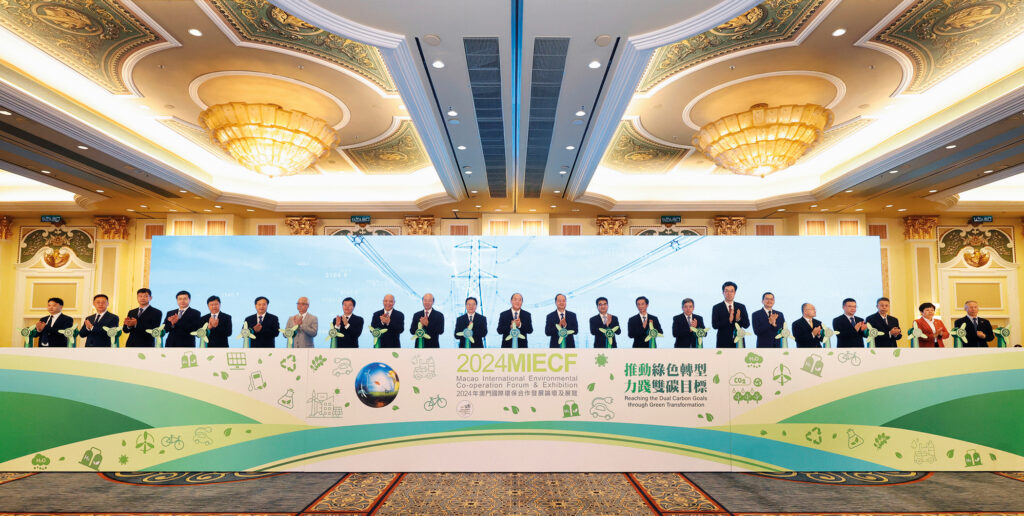
It’s important to think of Macao’s integration with the mainland as that of a city incorporated within the GBA. Around the world, bay areas are defined by substantial flows of exchange and significant levels of development. The San Francisco Bay Area in the US and Japan’s Greater Tokyo are well-known examples. China’s GBA has been advancing since its 2017 inception and today it is equipped with an impressive array of infrastructures: six major airports, seven deep seaports, two of the longest bridges in the world and state-of-the-art network of interconnected railways. The GBA is fueled by the Central Government’s desire to transform it into the largest, most advanced megalopolis in the world.
Macao brings its numerous attributes to this dynamic region, many of which contribute to China’s outward-looking ambitions. These include its international legal personality, low taxation regime, separate customs territory, the number and quality of its universities, and its long-standing relationships with Portuguese-speaking countries around the world.
Then there’s the Mainland and Macao Closer Economic Partnership Arrangement (CEPA), signed in 2003. The free trade-like agreement facilitates commercial and investment flows between the two parties, deepening Macao’s role as a platform for Sino-Lusophone cooperation.
The Guangdong-Macao Intensive Cooperation Zone in Hengqin is another manifestation of Macao-mainland integration, established to boost Macao’s own economic diversification aims. But it will also house a globally recognised financial system focused on the interconnectivity of people, logistics, capital and information through institutional innovations and the development of offshore markets.
The ‘1+4’ strategy
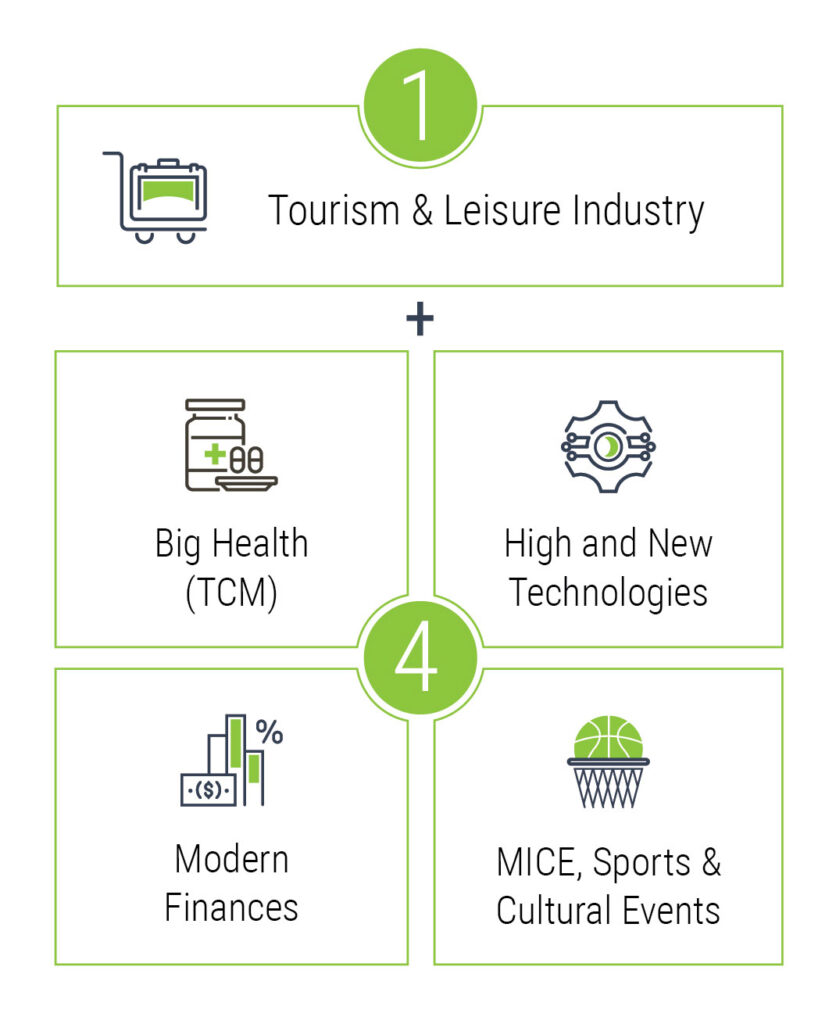
Economic diversification is underway in Macao, in accordance with the government’s ‘1+4’ strategy. This maintains integrated tourism and leisure as Macao’s foundational industry, while supporting four emerging industries to grow and thrive. Each of these nascent industries is outward-looking in its own right, aligning with China’s vision of economic openness and cooperation at international levels.
For example, the emerging big health industry has an emphasis on medical tourism, inviting people from overseas to travel to Macao and make use of its high-quality medical facilities. There’s also a research component involving cooperation between local and overseas medical institutions in a wide range of fields. The Guangdong-Macao Traditional Chinese Medicine Science and Technology Industrial Park, located in Hengqin, is another outward-looking aspect of the industry.
Meanwhile, the modern financial services industry is being encouraged to carry out more offshore and cross-border business. Macao aims to become a strategic hub for offshore yuan clearing, boosting financial connectivity between China and its global markets while aligning with China’s efforts to internationalise its currency.
A focus on high and new technologies should help Macao attract foreign direct investment from global technology companies looking to establish a presence in the region. It will also necessitate collaboration with international partners for research and development purposes. The industry will allow Macao to serve as a bridge for Chinese tech firms eager to partner with offshore companies, universities and research institutions – facilitating the exchange of knowledge and innovation.
By developing advanced technology products and services, Macao will be able to expand its export portfolio. The tech industry also relies on global supply chains, meaning that – as a vital cog – the SAR will become increasingly embedded within the global economy.
Macao already has very strong foundations in the fourth emerging industry: meetings, incentives, conferences and exhibitions (collectively known as MICE), in conjunction with the staging of large-scale sporting and cultural events. In 2023, the International Association of Exhibition Events granted the then Macao Trade and Investment Promotion Institute its International Excellence Award for progress the SAR had made in the internationalisation of its MICE industry.
The vast majority of the city’s MICE events are international in scope, drawing exhibitors and audiences from around the world. Examples include the Global Tourism Economy Forum (GTEF), the International Infrastructure Investment and Construction Forum (IIICF), and the Macao International Environmental Co-operation Forum & Exhibition (MIECF).
In terms of cultural events, Macao International Music Festival and Art Macao – the SAR’s international art biennale – are just two examples of the many annual fixtures renowned for their high-calibre offerings each year. And of course everyone knows about the Macau Grand Prix, the iconic motorsport event where contestants from many different countries take on the city’s challenging Guia Circuit.
Macao’s unique cultural heritage – a fusion of Chinese and Portuguese found nowhere else in the world save in Macao’s cuisine, architecture and local dialect – is also a major drawcard for the city. This special appeal is particularly popular with international visitors.
Of course, growing the ‘1+4’ industries takes talent. Macao is casting its net wide to attract the highest calibre of global talent on offer, who themselves will add to the city’s outward-looking perspective. These highly skilled professionals are bringing innovative ideas and fresh approaches to the table, while facilitating cross-border collaboration through their existing networks.
A platform for cooperation
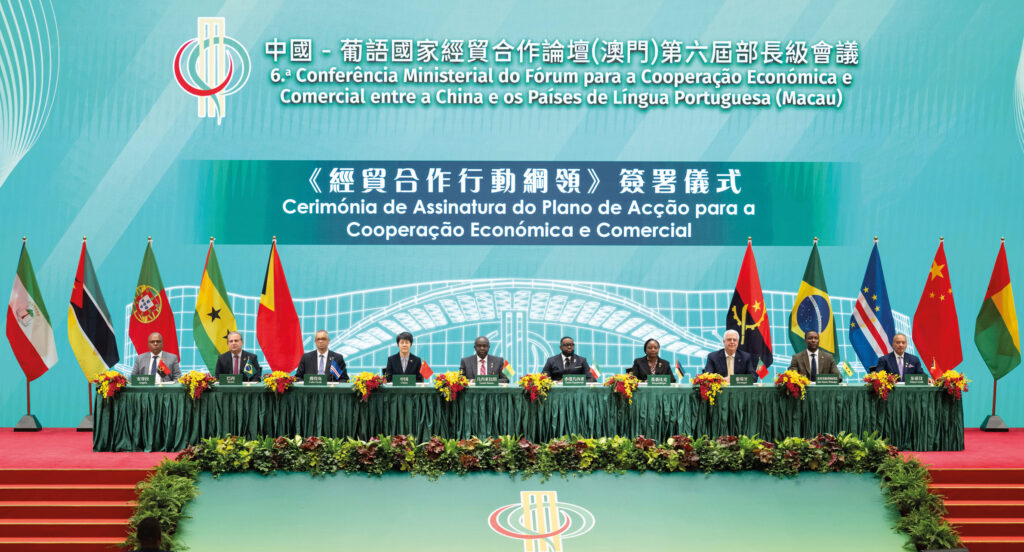
One of Macao’s most crucial roles in the nation’s outward-looking development is as a service platform for commercial and cultural cooperation between China and the PSCs. Forum Macao was established in 2003 in Macao. Angola, Brazil, Cabo Verde, China, Guinea-Bissau, Mozambique, Portugal and Timor Leste were the founding members of this multilateral, intergovernmental cooperation mechanism. They’ve since been joined by Sao Tome and Principe (in 2017) and Equatorial Guinea (in 2022), bringing membership up to 10 countries.
Since Forum Macao’s establishment, trade between China and PSCs has grown 20-fold and China has become one of the most important trade partners for each of the other nine members.
Three ‘centres’ are at the heart of Forum Macao, and each has produced tangible results over the years. There’s a food distribution centre promoting Portuguese food products in the mainland; a convention and exhibition centre for PSCs interested in targeting the Chinese market; and a service centre that organises trade delegations of small and medium-sized enterprises (SMEs) from PSCs to visit the mainland. And all of this happens via Macao, facilitated by the ‘One Country, Two Systems’ policy.
More initiatives are in the pipeline. Future Forum Macao projects include a China-PSCs financial services platform, a yuan clearing centre for PSCs, a China-PSCs cultural exchange hub, youth innovation and entrepreneurship exchange programmes, and a Sino-Lusophone bilingual training base.
Since its inception, six Ministerial Conferences and an Extraordinary Ministerial Meeting of Forum Macao have been convened. In 2004, the Permanent Secretariat of Forum Macao was established in the SAR, to execute and implement the resolutions approved at the Ministerial Conferences. The Forum last met in April this year, when it highlighted a number of emerging areas of cooperation – including poverty reduction, climate change response, green development and the blue economy.
Striding into the future
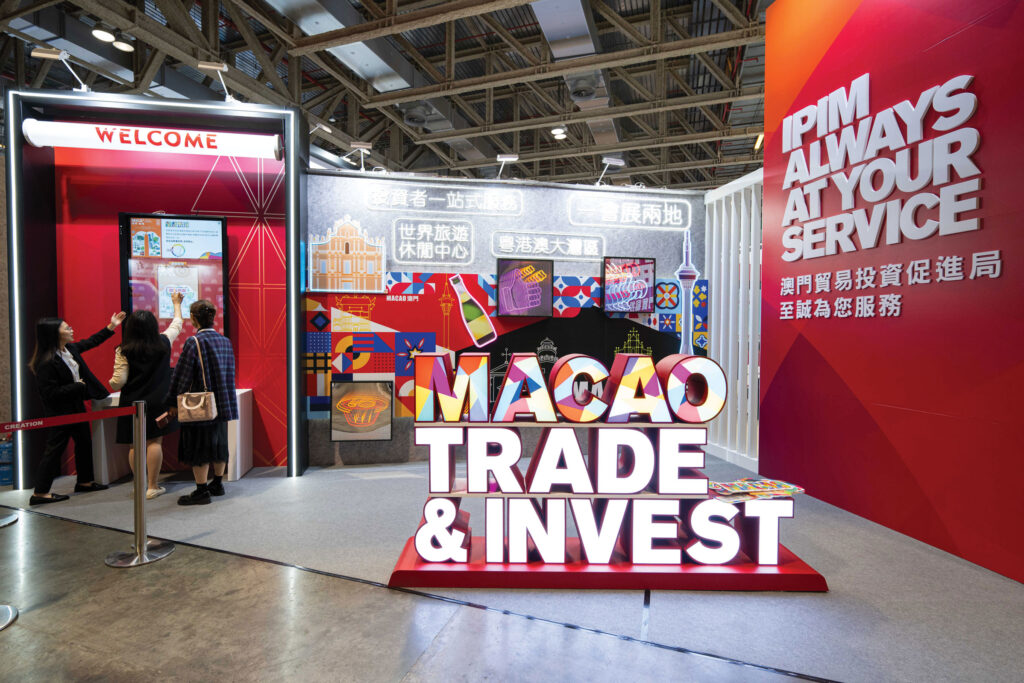
The SAR’s capacity to contribute to the country’s opening up is growing. It’s happening as Macao becomes increasingly integrated with the mainland, as its economic diversification is taking off, and as Forum Macao’s role expands. The city is already part of one of the most dynamic regions in the world: the GBA. This presents a myriad of opportunities: for its own development under the ‘One Country, Two Systems’ policy, but also for China – to which Macao inextricably belongs.
